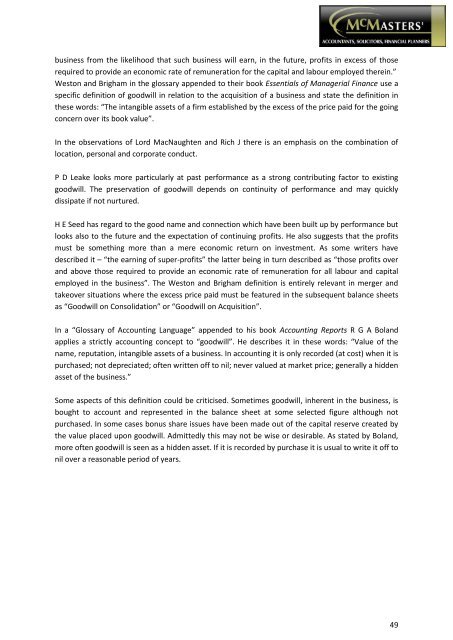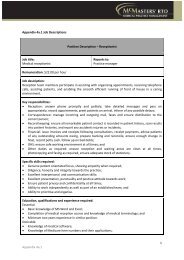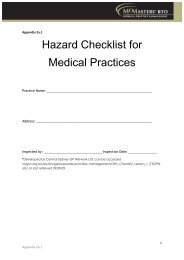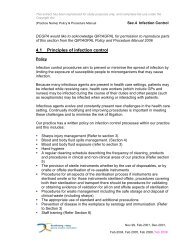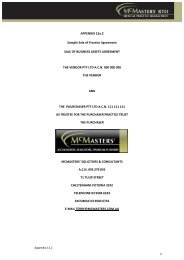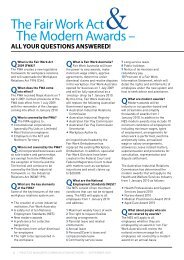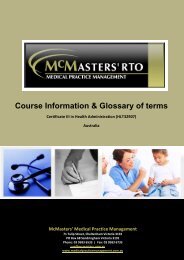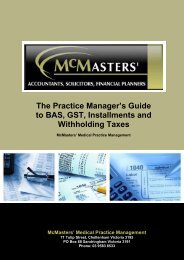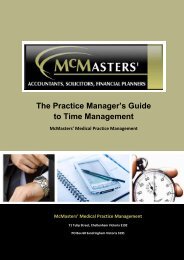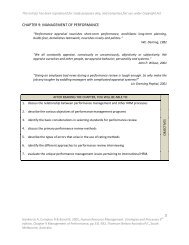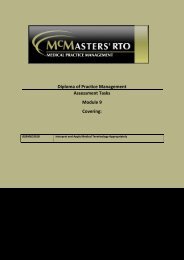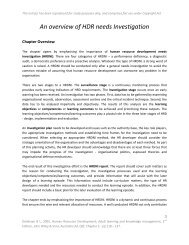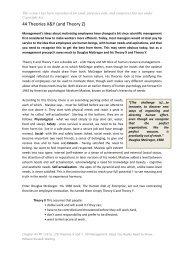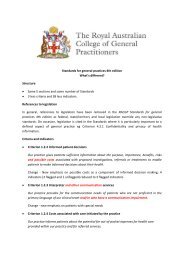The Practice Manager's Guide to Buying a Practice - McMasters ...
The Practice Manager's Guide to Buying a Practice - McMasters ...
The Practice Manager's Guide to Buying a Practice - McMasters ...
You also want an ePaper? Increase the reach of your titles
YUMPU automatically turns print PDFs into web optimized ePapers that Google loves.
usiness from the likelihood that such business will earn, in the future, profits in excess of thoserequired <strong>to</strong> provide an economic rate of remuneration for the capital and labour employed therein.”Wes<strong>to</strong>n and Brigham in the glossary appended <strong>to</strong> their book Essentials of Managerial Finance use aspecific definition of goodwill in relation <strong>to</strong> the acquisition of a business and state the definition inthese words: “<strong>The</strong> intangible assets of a firm established by the excess of the price paid for the goingconcern over its book value”.In the observations of Lord MacNaughten and Rich J there is an emphasis on the combination oflocation, personal and corporate conduct.P D Leake looks more particularly at past performance as a strong contributing fac<strong>to</strong>r <strong>to</strong> existinggoodwill. <strong>The</strong> preservation of goodwill depends on continuity of performance and may quicklydissipate if not nurtured.H E Seed has regard <strong>to</strong> the good name and connection which have been built up by performance butlooks also <strong>to</strong> the future and the expectation of continuing profits. He also suggests that the profitsmust be something more than a mere economic return on investment. As some writers havedescribed it – “the earning of super-profits” the latter being in turn described as “those profits overand above those required <strong>to</strong> provide an economic rate of remuneration for all labour and capitalemployed in the business”. <strong>The</strong> Wes<strong>to</strong>n and Brigham definition is entirely relevant in merger andtakeover situations where the excess price paid must be featured in the subsequent balance sheetsas “Goodwill on Consolidation” or “Goodwill on Acquisition”.In a “Glossary of Accounting Language” appended <strong>to</strong> his book Accounting Reports R G A Bolandapplies a strictly accounting concept <strong>to</strong> “goodwill”. He describes it in these words: “Value of thename, reputation, intangible assets of a business. In accounting it is only recorded (at cost) when it ispurchased; not depreciated; often written off <strong>to</strong> nil; never valued at market price; generally a hiddenasset of the business.”Some aspects of this definition could be criticised. Sometimes goodwill, inherent in the business, isbought <strong>to</strong> account and represented in the balance sheet at some selected figure although notpurchased. In some cases bonus share issues have been made out of the capital reserve created bythe value placed upon goodwill. Admittedly this may not be wise or desirable. As stated by Boland,more often goodwill is seen as a hidden asset. If it is recorded by purchase it is usual <strong>to</strong> write it off <strong>to</strong>nil over a reasonable period of years.49


